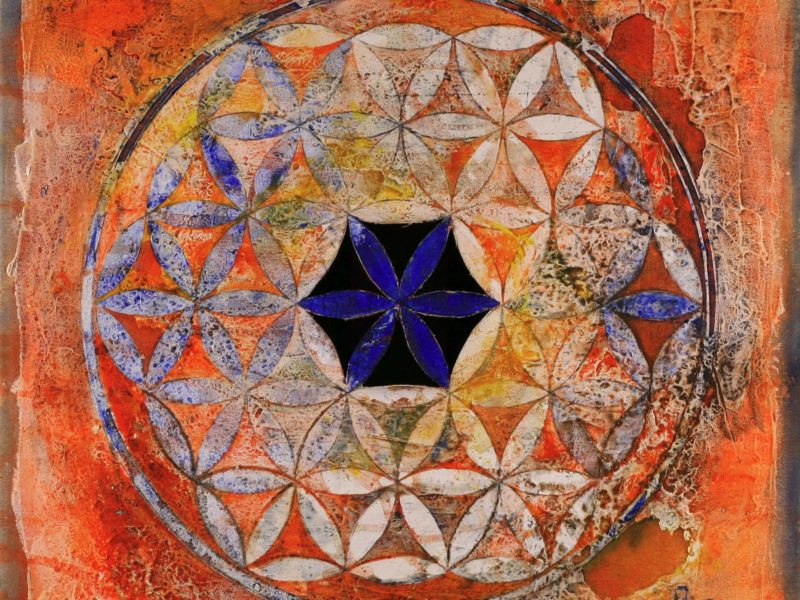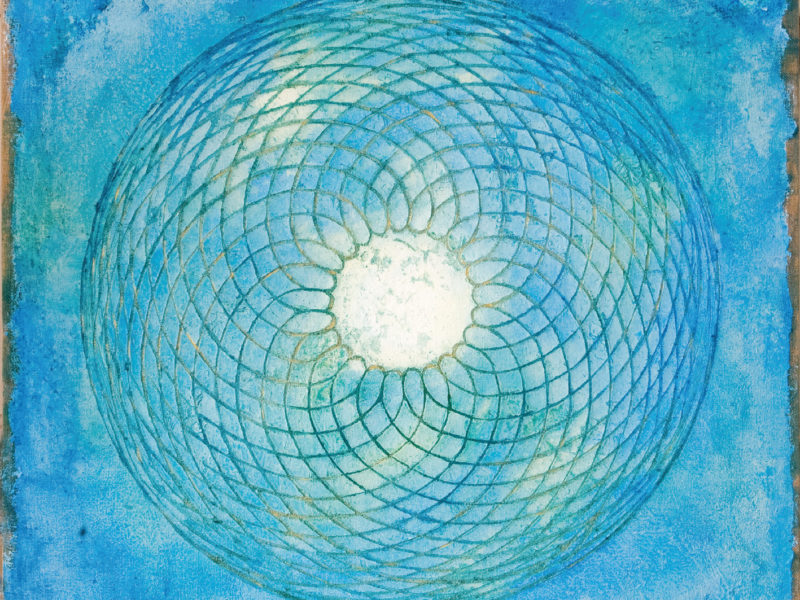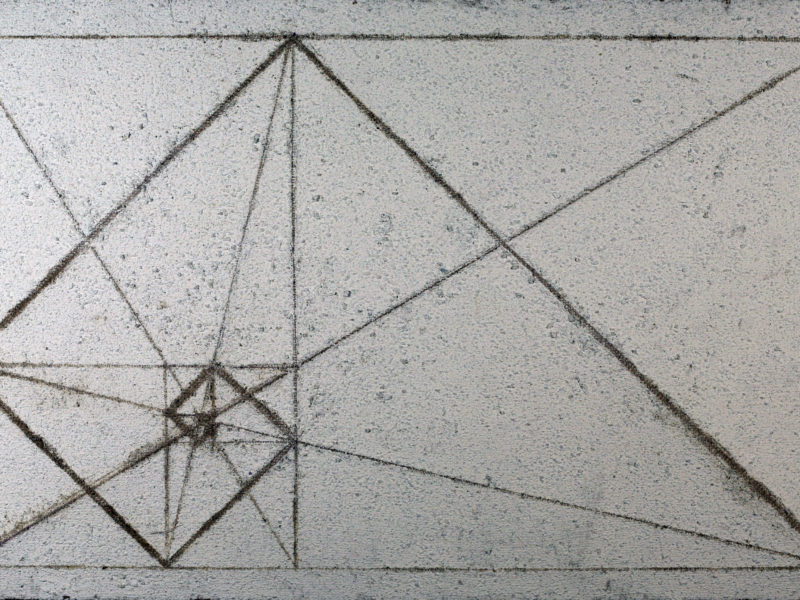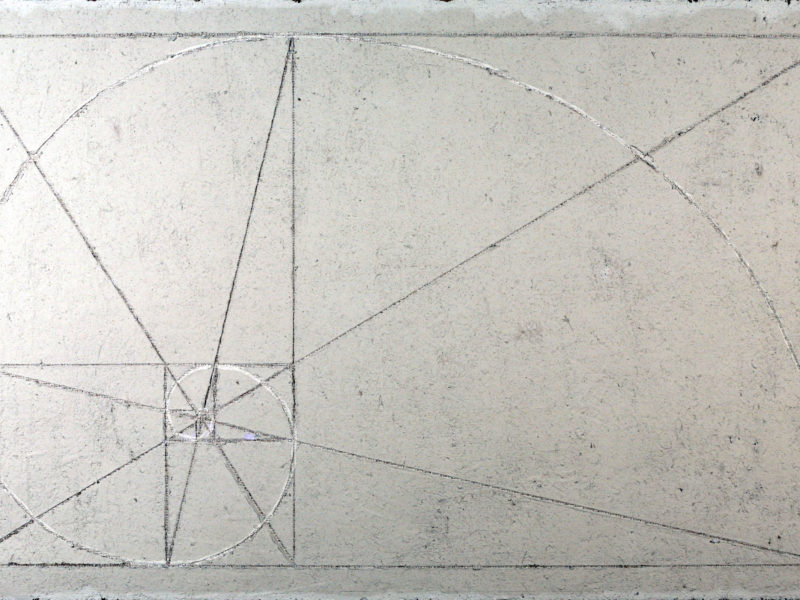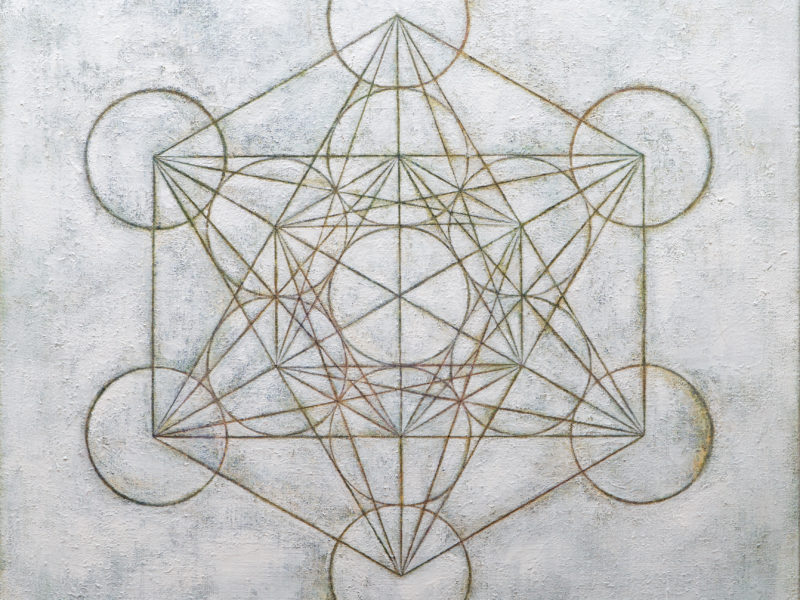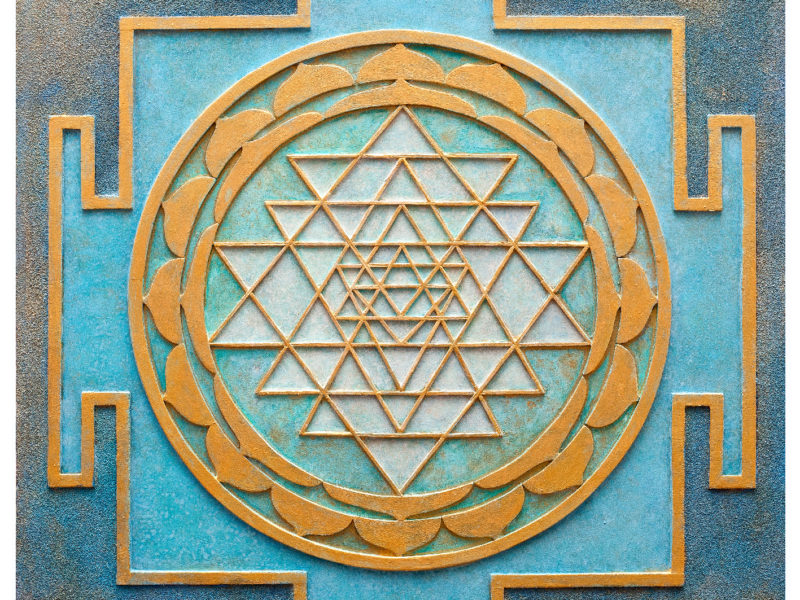Griglia magnetica
Griglia magnetica
Griglia magnetica
2011 – gesso inciso, sabbia e pigmento puro su tela,
100×100 cm
Opera installativa esposta nell’ambito della mostra
“l’Arte e il senso del Sacro”, Pinacoteca Albertina, 2015
collezione privata
Magnetic grid
2011 – engraved plaster, sand and pure pigment on
canvas, 100×100 cm
Installation work exhibited as part of the exhibition
“l’Arte e il senso del Sacro”, “Art and the Sense of the
Sacred”, Pinacoteca Albertina, 2015
private collection
Geometria Sacra
Nell’antichità, oltre che nella cultura induista, in diversi periodi storici sono stati utilizzati determinati numeri e forme geometriche regolari, nella realizzazione di edifici, dipinti e sculture a carattere religioso e sacro. L’idea di Platone, per esempio, che i solidi regolari da lui inventati costituissero la struttura dell’essere umano e dell’universo ha affascinato e influenzato il pensiero di artisti e matematici di ogni epoca, a partire dalla cultura greca fino al Rinascimento per arrivare a stimolare l’immaginazione di pensatori e creativi del nostro secolo. Fin dai tempi più antichi inoltre gli astronomi hanno, per esempio, scoperto che i pianeti descrivono nel cielo dei disegni che presentano un’incredibile precisione geometrica nella loro disposizione e nei percorsi che compiono con le loro orbite intorno al sole. Anche in natura ritroviamo numerosi esempi di armonia e di equilibrio dall’astronomia nello studio del movimento dei pianeti alle sequenze dei petali nella botanica, che rispecchiano i principi teorici della sezione Aurea nota ad Archimede Pitagorico e utilizzata attraverso i vari secoli per la costruzione di edifici sacri, dai templi antichi come il Partenone e le piramidi, alle chiese e abbazie più recenti.
Sacred Geometry
In the past, as well as in culture Hindu, in different historical periods some numbers and regular geometric shapes have been used, in the construction of buildings, paintings and religious and sacred sculptures. For example, Plato claimed that regular solids he invented made up the structure of the human being and of the universe. This idea has fascinated and influenced the thought of artists and mathematicians of all ages, starting from Greek culture to the Renaissance to get to stimulate the imagination of thinkers and creatives of our century. Since ancient times also astronomers have, for example, discovered that planets describe in the heaven of drawings that present an incredible geometric precision in their arrangement and in the paths they make with their orbits around the sun. Even in nature we find many examples of harmony and balance from astronomy in the study of the movement of the planets to the sequences of the petals in botany, which reflect the theoretical principles of the Golden section known to Archimedes Pythagorean and used throughout the centuries for the construction of sacred buildings, from ancient temples such as the Parthenon and the pyramids, to the more recent churches and abbeys.
Geometria Sacra
5 Aprile 2020



